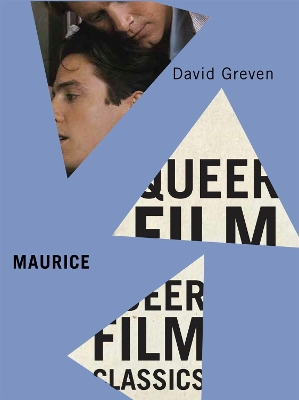Queer Film Classics
1 total work
Maurice, James Ivory’s 1987 adaptation of the E.M. Forster novel, follows an Edwardian man’s journey from the awakening of his desire for and love of men to self-acceptance. One of the most politically resistant films of the 1980s, Maurice dared to depict a young man’s coming-out story and a happy ending for its lovers, Maurice and Alec.
James Ivory and producer Ismail Merchant, a couple whose cinema is synonymous with period film adaptation, released Maurice during the first AIDS decade, a time of flagrant transatlantic homophobia. Criticism following its release described Ivory as a superficial and staid director, while the film was received as a regression to the uncinematic and overly faithful style that characterized the early adaptations by Merchant Ivory Productions. Offering a close reading of Forster’s novel and an analysis of Ivory’s distinctive visual style, Richard Robbins’s indelible score, and the performances of James Wilby, Hugh Grant, and Rupert Graves, David Greven argues that the film is a model of sympathetic adaptation. This study champions the film as the finest of the Merchant Ivory works, making a case for Ivory’s underappreciated talents as a director of great subtlety and intelligence, and for the film as one worth recuperating from its detractors.
Understanding Maurice as a fully realized work of art and adaptation, this volume offers insight into how a stunning novel of gay love became a classic of queer film.
